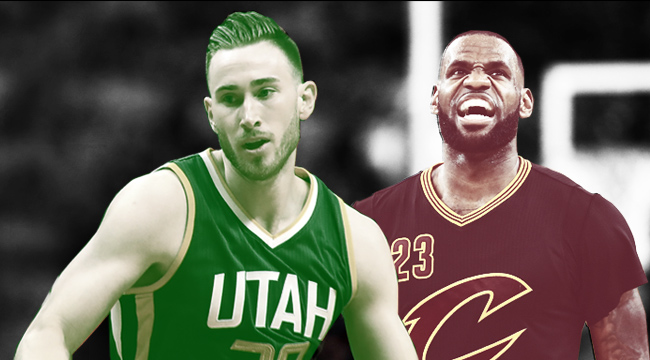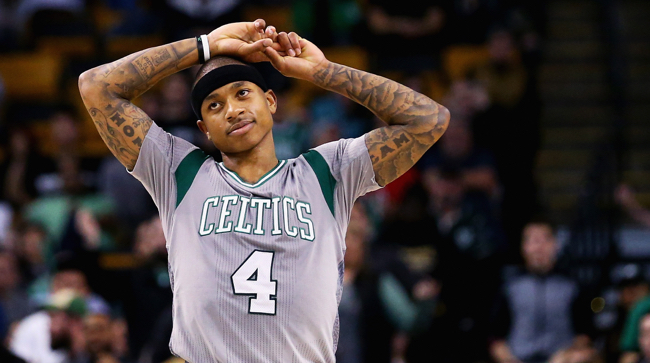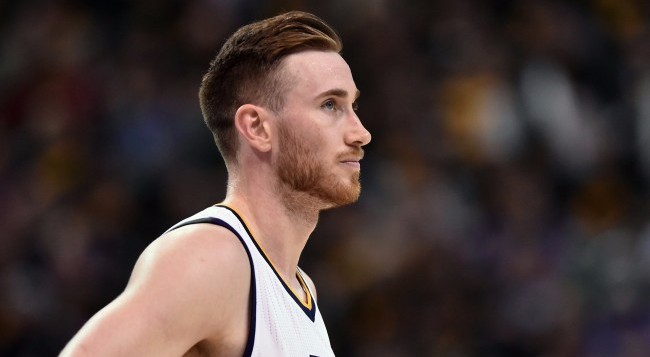
It has been a very interesting summer for Danny Ainge, Brad Stevens, and the Boston Celtics. As the 2017 NBA Draft approached, the team held the No. 1 overall pick and the assets to make legitimate runs at both Gordon Hayward and Paul George. Now in early July, the Celtics still own a stockpile of assets, but did not acquire Markelle Fultz and George. Rather, Boston has Jayson Tatum and a bevy of future NBA Draft capital.
On Independence Day, though, the Celtics finally made the “big splash” that the NBA world has anticipated for quite some time when Hayward decided to make the leap to Boston. From the standpoint of Ainge and Boston’s front office, the opportunity to add a top-20 player in his prime is a no-brainer, though it should be noted that the team must exercise some salary cap gymnastics in order to fit in what is a max contract for at least the next three seasons.
But despite getting a big win in July, there is one massive question left to answer: Just how close does the addition of Hayward bring the Celtics to LeBron James and the Cleveland Cavaliers?
A few weeks ago, the Celtics took a game against the Cavaliers in the Eastern Conference Finals, but it would be impossible to argue that the series should be described as thoroughly competitive. In fact, Cleveland virtually cruised through the regular season, relinquishing home court in said series, and still faced very little opposition before falling victim to the Golden State Warriors in the NBA Finals.

Now, though, Boston has another legitimate top-flight player to pair with Isaiah Thomas, Al Horford, and a strong young nucleus of assets that includes Jaylen Brown and Tatum. The opportunity cost of adding Hayward could include a trade that sends either Jae Crowder or Marcus Smart away, but the team’s rotation is both deep and dotted with impressive individual players.
What the Celtics (still) do not have, though, is a defined answer for Cleveland’s offensive attack. The Celtics finished the 2016-2017 season with the 12th-best defensive efficiency in the league, allowing 105.5 points per 100 possessions. That figure is relatively unimpressive in the grand scheme, but against the Cavs in the postseason, that number ballooned to an unsightly 126.9 (!) points per 100 possessions in the five-game playoff series.
Hayward is big, physical and intelligent on the defensive end but, more than anything, he provides an injection of talent offensively that Boston did not have before. It always helps to add talent to an already stout attack on that end of the floor but replacing at least some minutes of Crowder or another traditional big with Hayward certainly won’t cure Boston’s defensive issues against Cleveland. Throw in the fact that the Thomas defensive conundrum remains, Horford is another year older and Boston has very little mechanism in which to add frontcourt beef (other than 2016 first-round draft pick Ante Zizic), and it’s not exactly clear if the Celtics are any better on defense.
There is nothing “final” about Boston’s roster construction at this point in time but the domino of adding another elite-level player like George is likely out the window unless Ainge storms into action via a large trade package for a yet undetermined asset. The addition of Hayward certainly helps Stevens and his staff to fill in gaps and, for the first time, Boston has a second primary offensive option to take the attention away from Thomas at times.

Just one year from now, though, the Celtics could quickly fix at least some of their defensive issues by way of the free agency of Thomas. The diminutive point guard is, as has been well documented, a liability on that end of the floor and his next contract will pay him handsomely and likely extend beyond his prime. A case can be made that the smart move, at least looking to the future, would be letting him walk.
Avery Bradley, though, is also a free agent, leaving plenty of uncertainty on both ends of the court for the Celtics and potentially shining a brighter light on the 2017-2018 campaign in a vacuum. With that in mind, the Cavaliers enter next season as the prohibitive favorites to once again repeat as Eastern Conference champions, even in the midst of their own front office turmoil and uncertainty about James’ potential exit in the summer of 2018.
Adding Gordon Hayward wouldn’t be a bad thing for any NBA team and it certainly isn’t bad for the Boston Celtics. But at the same time, his arrival doesn’t provide Boston with the inside track on the next step of reaching the NBA Finals in 2017-2018. At least not with LeBron still in the East.






